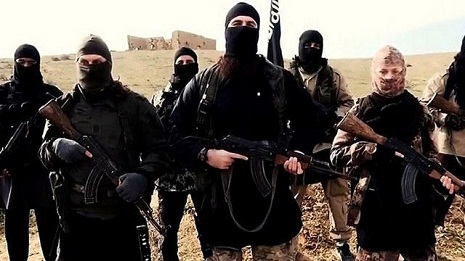The stakes – human, economic, and strategic – are enormous. Hundreds of thousands have lost their lives; millions have been rendered homeless. Oil prices are low, but they will not remain so if Saudi Arabia experiences terrorist strikes or instability. The threat to the region is large and growing, and it menaces people everywhere, as extremist fighters return home and still others who never left are inspired to do terrible things. Indeed, though the Middle East is facing an abundance of challenges to its stability, none is as large, dangerous, and immediate as the Islamic State.
Those who object to calling the Islamic State a state have a point. In many ways, IS is a hybrid: part movement, part network, and part organization. Nor is it defined by geography. But it does control territory, boasts some 20,000 fighters, and, fueled by religious ideology, has an agenda.
Ultimately, of course, deciding whether to call what has emerged “ISIS" or “ISIL" or the “Islamic State" matters much less than deciding how to take it on. Any strategy must be realistic. Eliminating IS is not achievable in the foreseeable future; but weakening it is.
A strategy must also be comprehensive. First, the flow of money to the Islamic State must be reduced. Lower oil prices help, and there are only so many banks to rob. But extortion continues, as does financial support from individuals. Such flows should be shut down both by governments and financial institutions.
Curtailing the flow of recruits is even more essential. Countries can do more to make it difficult for individuals to leave for Iraq or Syria; a Europe-wide watch list, for example, would help. But nothing would have a greater impact than Turkey deciding that it will no longer allow itself to be a conduit, and that it will enforce United Nations Security Council Resolution 2178, which calls for stronger international cooperation against terrorism.
Another component of any strategy must be to counter IS`s appeal and propaganda. This means publicizing the misery it has caused to those living under its rule. It also means persuading Muslim religious leaders and scholars to make the case that IS`s behavior is illegitimate from the standpoint of Islam.
Of course, any strategy must challenge IS directly in Iraq and Syria. In Iraq, there is some evidence that its momentum has been halted; but the growing role of Iran and the Shia militias it backs all but guarantees that many Iraqi Sunnis will come to sympathize with or even support the Islamic State, whatever their misgivings. This is why outsiders should place greater emphasis on providing military and political support to Kurdish forces and Sunni tribes.
Syria is a far more difficult case, given its civil war and the competition among outsiders for influence. Attacks from the air on IS forces are necessary but insufficient. Because IS is a territorially based entity, there must be a ground dimension if the effort is to progress; after all, only ground forces can take and hold territory.
The best approach would be to create a multinational force consisting of soldiers from neighboring countries, particularly Jordan. The United States and other NATO countries could offer assistance, but the fight must be waged largely by other Sunnis. What is occurring in the region is a clash within a civilization; to enable IS to portray it as a conflict between civilizations – and itself as the true defender of Islam – would be a grave strategic mistake.
Moderate Syrian opposition forces and local Kurds could be part of such a multinational Sunni force, but they are not in a position to substitute for it. If such an expeditionary force cannot be formed, air attacks can be stepped up, thereby at least slowing IS and buying time to develop alternative strategies. Under such a scenario, IS would remain less a problem to be solved and more a situation to be managed.
Diplomacy cannot play a large role at this point. No solution can be imposed, given disagreements among the outside countries with a stake in Syria and the strength of both IS and the Syrian government. What diplomacy may be able to do is reduce, if not end, the fighting between the Syrian government and its own people, as the UN is attempting to do in Aleppo.
The biggest danger in 2015 may well be a widening of the regional crisis to Saudi Arabia and Jordan. Intelligence and military support for both countries will be essential, as will enhanced efforts to help Jordan shoulder its massive refugee burden. In this time of unprecedented turmoil in the Middle East, one of the region`s basic rules still applies: No matter how bad the situation, it can always become worse.
More about:
















































